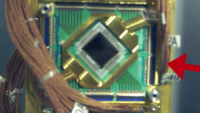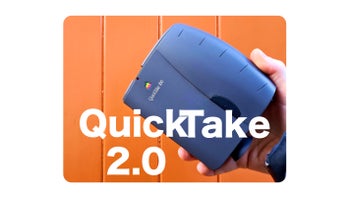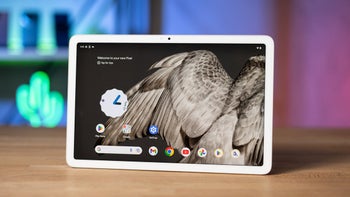Google, NASA, and D-Wave show us the future with quantum computing

We are on the cusp of an evolutionary leap in our computers. Google, NASA, and D-Wave have come together to build the world's first quantum computers, and then solve one simple problem: What questions do we ask this computer? That's how early in we are on this. We know how to build the machine, but we don't quite know how to use it.

Quantum Computers
First of all, it is probably a good idea to give a very dumbed-down explanation of what a quantum computer is, because not everyone may be familiar with it. It its introduction video for the Quantum Artificial Intelligence Lab, Google and company break down what a quantum computer is, why it is difficult to build, and why it is such a profound leap in computing. Basically, it is a primer on the basics of Quantum Theory, covering superposition (two things occupying the same space at the same time), entanglement (the connection between two objects that can be very far apart, the multiverse (parallel universes), and tunneling (traveling between those parallel universes).
A computer has been built based on those principals, and to grossly simplify - current computers use a binary system where at the base level everything is either a one or a zero; with quantum computers the base level can be a one, a zero, or both at the same time. So, in addition to the standard binary bits, the computer also now uses quantum theory (entanglement, tunneling, etc.) to create a qubit which can be both a one or a zero at the same time. This is a seismic shift in computing and computational power. This one computer can solve more complex problems than all of the computers in all of Google's server farms around the world. This is big.
The questions and answers
This computer and others like it will be able to solve extremely complex problems, like those that are generated from the flood of personal data that has come with the smartphone revolution. We are constantly documenting our personal worlds, tracking out travel, our health, and sharing it. We have GPS tracking wherever we go at all times. We have devices to constantly monitor our heart rate, oxygen levels, and more. We have our behavioral patterns tracked from where we shop, to where we hang out, and more. This is in addition to all of the other sources of data that had existed before like environmental tracking (weather, climate, sea levels, etc.), economic tracking (currency, stocks, goods trading, etc.), historical tracking (news and events), astronomical data (because this is a video about a partnership between Google and NASA, there is also the potential for answering questions about the universe itself. It could help in space exploration, in finding other sentient species on other planets, and much much more) and everything else. All of this is generating huge amounts of data, but that data is being somewhat wasted because we don't have the computational power to really dig into that data and find relevant information.
This is going to be one of the first problems tackled by the quantum computer. The example given is for travel plans where you want to start in one location, visit 20 countries along the way, and end up in one final city. Right now, computers can compare flights to give you the best options in terms of distance, travel time, and cost. A quantum computer would be able to consider exponentially more options like weather along each potential route, the size of the plane, the amount of space you would have in your seat, the extra options available on each flight, etc.
Linked to that, the other main aim of the quantum computer right now is in Artificial Intelligence (hence the name of the Quantum A.I. Lab). Because quantum computers can consider so many more factors all at the same time, its capabilities can start to rival that of our own brains. Current computers can do a lot of things really really fast sequentially, but our brains process immense amounts of data automatically what seems to be almost instantly. (For more on that, read Blink by Malcolm Gladwell.)
So, for an example more tuned to our audience: this could be Google Now becoming sentient. Google Now is one of the best pieces of software to come out in recent history, but at its core, it is relatively basic - it gathers certain data from various Google properties and serves you relevant information. It serves your data back to you at the right time and in the right place without you needing to ask for it. But, a quantum computer would be able to more efficiently find the patterns and connection in the data as well as adding in all of the external data points that relate back. Extending the example from before, Google Now would be able to help you plan that trip with all of those factors taken into account, but it would also know that you have family or friends in different cities along the way, so maybe it organizes the flights to get you a few more hours in those places.
The future
That is just the basics, and the first simple problems that can be answered with a computer like this. Once we learn more about quantum theory, about the computer itself, and about the data that we have sitting around all over the world, we can start to come up with more intelligent, and more complex questions that need to be solved. The repercussions will be felt everywhere.
Of course, this is just the beginning. Right now, there are only two quantum computers that have been built by D-Wave. As that technology evolves, quantum computers will be come cheaper and easier to build, and will eventually make their way into the hands of consumers. Given the exponential possibilities of quantum computers, its hard to even gauge how long that might take, but we will all be witnesses to this evolution.

source: Google (YouTube) & +Google Quantum A.I. Lab













Things that are NOT allowed: